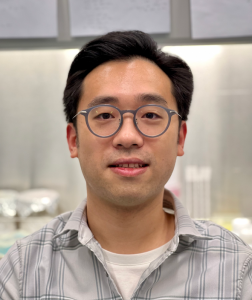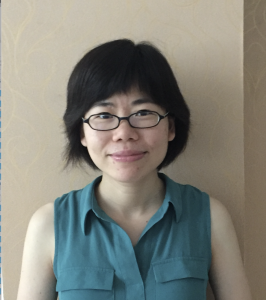 Wan Yang Wan YangAssistant Professor Department of Epidemiology Mailman School of Public Health Columbia University [email protected] faculty webpage Google Scholar; Github Wan is interested in understanding mechanisms governing disease systems, for devising prevention and intervention strategies. Trained in environmental engineering, computer science, infectious disease modeling and epidemiology, she applies mathematical modeling and Bayesian inference methods to address a wide range of questions related to both communicable and noncommunicable diseases. |
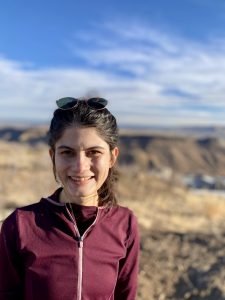
Subekshya Bidari
Post-doc Research Scientist
Department of Epidemiology Mailman School of Public Health Columbia University I received my PhD and MS in Applied Mathematics from University of Colorado Boulder. During my graduate studies, I studied how animal groups acquire information under uncertain environmental conditions, share information and make decisions in groups using dynamic and stochastic models. I am interested in the application of mathematical models and data analysis to study complex social and biological systems. As a postdoc in the Yang Epi-Modeling Group, I am working on developing models of measles transmission focusing on the effects of household structures in the transmission pathways. When I am not working, I like to run with various running groups in the city. |
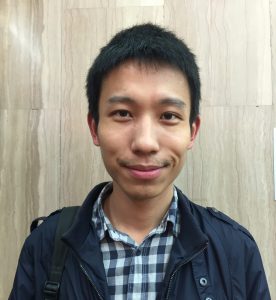 Jianjiu “JC” Chen Jianjiu “JC” ChenPost-doc Research Scientist Department of Epidemiology Mailman School of Public Health Columbia University [email protected] JC received his MPhil and PhD from the School of Public Health at the University of Hong Kong. During his graduate studies, he explored various topics in tobacco control, including adolescent smoking prevention, e-cigarettes, and tobacco industry denormalization. As a visiting doctoral student at the University of Florida, he used mathematical modeling to predict smoking prevalence in Hong Kong. At Columbia, he is mainly working on model-inference systems for the study of measles epidemics in China. Outside of work, JC enjoys traveling with his wife across China and the world.
|
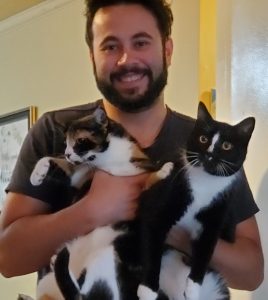 Navid Mohammad Mirzaei Navid Mohammad MirzaeiPost-doc Research Scientist Department of Epidemiology Mailman School of Public Health Columbia University [email protected] I received my Ph.D. in applied mathematics from the University of Delaware in 2020. My graduate work revolved around modeling arterial mechanics and the histological factors leading to intimal thickening and atherosclerosis. After graduating, I started working as a Visiting Assistant Professor at the Department of Mathematics and Statistics at the University of Massachusetts Amherst. During my time at UMass, besides teaching interesting math courses, I investigated the dynamics of the tumor microenvironment and its effects on the growth and deformation of the cancer domain. I am currently a Postdoctoral Research Scientist in the Yang Epi-Modeling group, working on models to infer risk factors contributing to the recent increases in early-onset cancers. In my spare time, I like watching movies, playing instruments, and reading books. |
|
Peihua received his PhD from the Department of Mechanical Engineering at the University of Hong Kong. His dissertation research addressed questions related to the physical and ecological mechanisms underlying infectious disease transmission in built environments. Specifically, he studied surface-mediated transmission dynamics using mathematical modeling and metagenomic sequencing, for devising environmental infection control measures. At Columbia, Peihua is working on the development of model-inference systems to identify key factors contributing to recent measles epidemics and to inform effective elimination strategies. Outside of work, Peihua likes watching documentaries and hiking meditation. |
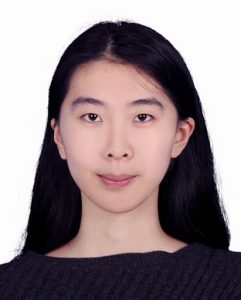 Haokun Yuan Haokun YuanStaff Associate Department of Epidemiology Mailman School of Public Health Columbia University [email protected] Haokun received her MS in biostatistics from the Mailman School of Public Health and her bachelor’s degree in Economics and Finance from the University of Iowa. She is interested in infectious disease modeling, and her most recent work includes an assessment of the impact of climate factors on influenza transmission in Hong Kong. With Dr. Yang, she is currently working on a project studying the interaction between different respiratory disease viruses at the population level. |

